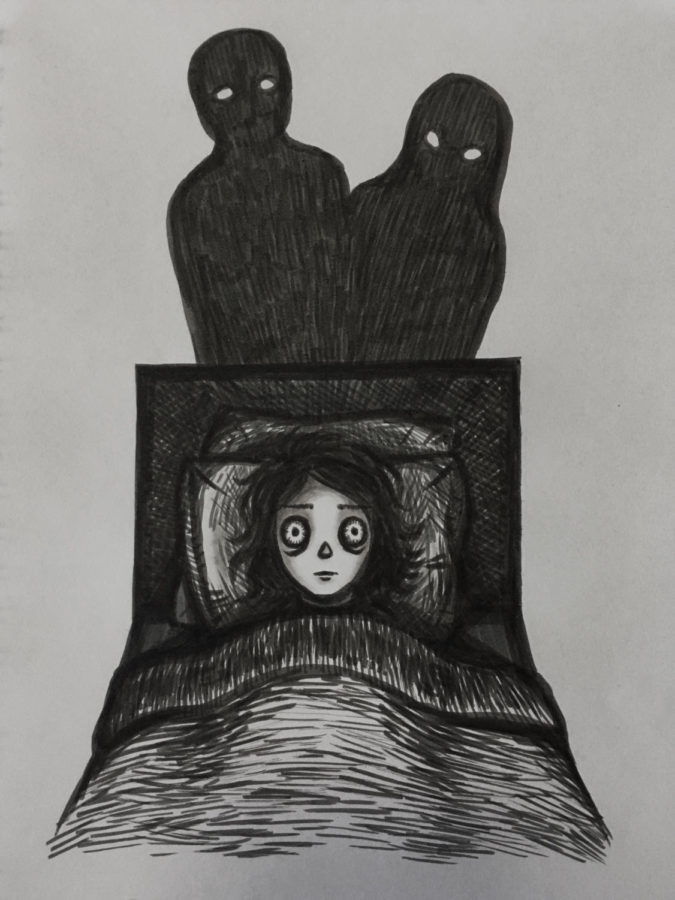There are many reasons why people may avoid seeking treatment for mental illness—social stigma, financial limitations, time constraints, etc. For some, it may seem easier to repress and ignore feelings because there is seemingly no practical gain from analyzing oneself. Another common reason many people avoid psychotherapy, however, stems from the fear of seeing who they really are. Self-reflection, an essential aspect of psychotherapy, can be extremely anxiety-provoking by itself, especially when thinking about the causes of certain negative emotions like fear. However, it has become clear to me through my own experiences that, though possibly distressing, self-reflection does lead to healing.
For as long as I can remember, I’ve had a tendency of replaying past events through a lens of self-doubt and anxiety. To give an example, I was trying to sleep one night when I started to think about my time teaching in China for a month. The experience was overall both incredible and joyful, but for some reason, as I began recalling moments in the classroom—whether it was leading an activity or explaining a concept—I started to see the events through a new lens of self-doubt and fear. This was only one of many sleepless nights in which I took positive memories and distorted them to fit a particular negative narrative of myself. It seemed as though there was another person living in my head, creating a second, more negative narrative of my life. This voice seemed to discount my happier memories, questioning my every action and thought until I began to see myself and my accomplishments through a much harsher lens.
I had avoided trying to understand why I did this because of the anxiety associated with dissecting the habit, but eventually I became determined to understand it. I found and read a psychology book by Lindsay Gibson that provided a clear structural framework that pertained to me and identified the negative, second-person voice in my head as a possible symptom. It offered clear, tangible guidelines on how to heal. Implementing the tips Gibson provided actually freed me from the negative voice because it forced me to truly reflect on not only my symptoms, but their underlying causes.
My chaotic inner life had had much control over my life because it was shrouded by mystery, confusion, and guilt. The invisible battles within my head paralyzed me because they seemed random and even spiritual. There was no clear reason as to why they were happening, and without an obvious answer, I just let the battles wage on. But, by understanding that these intruding thoughts were simply symptoms of an underlying cause, logic imposed order onto what I thought was just chaos. Structurally comprehending the once-obscure forces reduced their power on me. Now that I knew the “answer” behind my troubled feelings and recognized the truths Gibson put forward, I knew that her postulates required more self-reflection on my part.
However, this constant journey into the inner workings of my mind proved emotionally taxing and anxiety-producing. The more work I put into my mental health, the more anxious I became. It almost seemed easier to stop and just live life as I did before. But I again found comfort in Gibson, who encourages understanding despite the distress:
“Although the uncertainty inherent in this process of self-examination can create the by-products of anxiety, guilt or depression, tackling these deep questions ultimately yields a stronger, more adaptive personality.”
Her words rang true—although I did feel anxiety from a deeper understanding of my psyche, the long-term relief and greater confidence I gained far outweighed the temporary discomfort.
I know many people continue to navigate their mental health journeys for a long time, and seeking to understand oneself better can be an uncomfortable and emotionally painful process. But the undertaking is worth it, as it means triumph over an afflicting symptom, better self-confidence, and a happier life.
Jane Jun is a fourth-year in the College majoring in economics.









